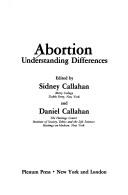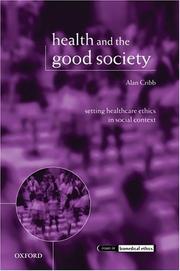| Listing 1 - 10 of 29 | << page >> |
Sort by
|
Periodical
Year: 2018 Publisher: Lisboa, Portugal : Universidade Católica Portuguesa,
Abstract | Keywords | Export | Availability | Bookmark
 Loading...
Loading...Choose an application
- Reference Manager
- EndNote
- RefWorks (Direct export to RefWorks)

ISBN: 2213602441 Year: 1998 Publisher: Paris Fayard
Abstract | Keywords | Export | Availability | Bookmark
 Loading...
Loading...Choose an application
- Reference Manager
- EndNote
- RefWorks (Direct export to RefWorks)
Fort de l'expérience de toute une vie chargée de responsabilités, René Lenoir s'adresse aux hommes de ce temps souvent privés de repères : "Je ne crois pas possible de penser la cité mondiale du XXIe siècle à partir de considérations économiques. Nous avons tous besoin de nourriture, de vêtements et d'un toit. Nous avons tout autant besoin d'amour et de savoir qui nous sommes. A titre individuel d'abord, comme communauté ensuite. Impossible d'évoquer la cité sans une vision anthropologique : on ne construit pas comme une ruche une société de personnes libres." Evoquant sa connivence avec l'univers et toutes les formes de vie, dialoguant avec les scientifiques et les philosophes de ce siècle, rappelant les valeurs élaborées par l'homme culturel depuis qu'il a émergé de l'homme biologique, l'auteur adresse à ses contemporains un message tonique. Il se demande cependant si nous ne nous sommes pas trompés de progrès. Son analyse critique de l'évolution mondiale s'appuie sur une connaissance des peuples chez qui il a travaillé et des institutions internationales qu'il a fréquentées, ce qui donne à son analyse un caractère concret et vivant. Il rend ainsi son ambition et sa noblesse à une politique visant l'épanouissement de tous les hommes et du tout de l'homme

ISBN: 0306416409 1461297036 1461327539 Year: 1984 Publisher: New York Plenum
Abstract | Keywords | Export | Availability | Bookmark
 Loading...
Loading...Choose an application
- Reference Manager
- EndNote
- RefWorks (Direct export to RefWorks)
This book, like many other things to do with abortion, is a product of long controversy. Though carried out with cooperation, it was conceived in conflict. The conflict between the coeditors has per sisted for years-in fact, for at least half of their thirty-year marriage. One, Sidney, is prolife; the other, Daniel, is prochoice. Ever since the topic of abortion became of professional interest to us, in the 1960s, we have disagreed. At one time, while Daniel was writing a book on the subject, Abortion: Law, Choice and Morality (1970), we talked about the subject every day for the four years of the book's gestation. On many occasions during the 1970s, prolife articles writ ten by Sidney were passed out at Daniel's lectures in order to refute his pro choice views. Over the years, every argument, every statistic, every historical example cited in the literature has been discussed by the two of us. As Eliza Doolittle says about "words" in My Fair Lady, "There's nota one I haven't heard. " And yet we still disagree. How can it be, we ask ourselves, that intelligent people of goodwill who know all the same facts and all the same arguments still come down on different sides of the con troversy? As we well know, it is possible to agree about many things and have great love and respect for an opponent, and still differ.
Abortion --- Pro-choice movement --- Pro-life movement --- Social values. --- abortus (vrijwillige zwangerschapsafbreking) --- waarden --- avortement (interruption volontaire de grossesse, IVG) --- valeurs --- Social values --- Values
Book
Year: 2020 Publisher: [Santiago, Chile] : Ariadna Ediciones,
Abstract | Keywords | Export | Availability | Bookmark
 Loading...
Loading...Choose an application
- Reference Manager
- EndNote
- RefWorks (Direct export to RefWorks)
Autonomy (Psychology) --- Authenticity (Philosophy) --- Imperialism --- Postcolonialism --- Philosophers --- Political science --- Philosophy --- Social values
Book
Year: 2008 Publisher: Washington : U.S. G.P.O.,
Abstract | Keywords | Export | Availability | Bookmark
 Loading...
Loading...Choose an application
- Reference Manager
- EndNote
- RefWorks (Direct export to RefWorks)
Legislation --- Judicial power --- Separation of powers --- Social values --- Consumer protection --- United States. --- Powers and duties.
Book
ISBN: 1921666730 1921666757 9781921666759 9781921666735 Year: 2010 Publisher: Acton, A.C.T. : ANUE Press,
Abstract | Keywords | Export | Availability | Bookmark
 Loading...
Loading...Choose an application
- Reference Manager
- EndNote
- RefWorks (Direct export to RefWorks)
"Ethics is a vigorously contested field. There are many competing moral frameworks, and different views about how normative considerations should inform the art and craft of governmental policy making. What is not in dispute, however, is that ethics matters"-- "This edited volume brings together a selection of 12 papers that were originally delivered at a major conference - Ethical Foundations of Public Policy - in December 2009 in Wellington, New Zealand. The conference was co-hosted by the Institute of Policy Studies and the Philosophy Programme at Victoria University of Wellington, and the Centre for Theology and Public Issues at the University of Otago, and was sponsored by the School of Government Trust. The conference was very well attended with some 350 participants, of whom about 50 delivered papers. The purpose of the conference was to encourage and facilitate debate about the ethical basis for policy making. This includes, of course, the ethical principles that should inform our behaviour, whether as citizens, voters, policy analysts, or decision makers, as well as the normative considerations that should guide our choices over the substantive content of particular policies - whether fiscal policy, health policy, or foreign policy"--
Ethics --- Decision making --- Social values --- Philosophy --- Philosophy & Religion --- Moral and ethical aspects --- Social values. --- Moral and ethical aspects. --- Decision-making (Ethics) --- Deontology --- Ethics, Primitive --- Ethology --- Moral philosophy --- Morality --- Morals --- Philosophy, Moral --- Science, Moral --- Values
Periodical
ISSN: 20015992
Abstract | Keywords | Export | Availability | Bookmark
 Loading...
Loading...Choose an application
- Reference Manager
- EndNote
- RefWorks (Direct export to RefWorks)
The overall aim of the journal is to foster valuable conversations in the new transdisciplinary and emerging field of valuation studies. Valuation here denotes any social practice where the value or values of something is established, assessed, negotiated, provoked, maintained, constructed and/or contested. To this end the journal welcomes contributions of different kinds and origins. Apart from traditional journal articles, the journal welcomes short opinion pieces or research notes, interviews, staged debates, or indeed longer than normal journal articles.
Economics --- Social values --- Social values. --- Sociological aspects --- Sociological aspects. --- Economic sociology --- Socio-economics --- Socioeconomics --- Sociology of economics --- Economic theory --- Political economy --- Social aspects --- valuation --- social science --- social theory --- practice studies --- social practice --- Values --- Sociology --- Social sciences --- Economic man

ISBN: 9780199232949 9780199242733 0199242739 Year: 2008 Publisher: Oxford Clarendon
Abstract | Keywords | Export | Availability | Bookmark
 Loading...
Loading...Choose an application
- Reference Manager
- EndNote
- RefWorks (Direct export to RefWorks)
What is health policy for? Alan Cribb addresses this question in a way that cuts across disciplinary boundaries. His core argument is that biomedical ethics should draw upon public health values and ethics. He argues that everybody has some share of responsibility for health, including a responsibility for promoting greater health equality.
gezondheidszorg --- gezondheidszorgbeleid (gezondheidszorghervorming, gezondheidszorgsysteem) --- volksgezondheid --- sociologie (sociologische aspecten) --- ethiek (ethische aspecten) --- soins de santé --- politique des soins de santé (réforme des soins de santé, système des soins de santé) --- santé publique --- sociologie (aspects sociologiques) --- ethique (aspects ethiques) --- Medical ethics --- Clinical medicine - Moral and ethical aspects --- Social Values --- Clinical medicine --- Ethics, Clinical. --- Ethics, Medical. --- Health Policy. --- Medical ethics. --- Public Health --- Social Values. --- Social values. --- Moral and ethical aspects. --- ethics.
Book
ISBN: 1780935226 1780931743 1780931786 1472545125 9781780931784 9781472545121 9781780935225 9781780931746 9781780931777 1780931778 Year: 2013 Publisher: London : Bloomsbury Academic,
Abstract | Keywords | Export | Availability | Bookmark
 Loading...
Loading...Choose an application
- Reference Manager
- EndNote
- RefWorks (Direct export to RefWorks)
"How can social science make itself relevant to the intractable problems facing humanity in the twenty-first century? The social sciences are under threat from two main sources. One is external, reflected in a global university crisis that imposes the marketization of higher education on the ancient practice of scholarship. The other, internal threat is social science's withdrawal from publicly-engaged teaching and research into the protective bunker of disciplinarity. In articulating a vision for the public role of social science in the twenty-first century, John Brewer argues that these threats also constitute an opportunity for a new public social science to emerge, confident in its public value and fully engaged with the future of humanity in its teaching, research and civic responsibilities, while also remaining committed to science. The argument is presented in the form of an interpretive essay: thought-provoking, forward-looking, and challenging to intellectual orthodoxy. It should be read and debated by all researchers and teachers in the social science disciplines who are concerned by the future of higher education and the relevance of their subjects to the future of humankind."--Bloomsbury Publishing.
Social sciences -- Study and teaching. --- Social sciences. --- Social values. --- Social sciences --- Social Sciences --- Social Sciences - General --- Study and teaching --- Study and teaching. --- Values --- Research. --- Social science research
Book
ISBN: 9781501726217 1501726218 0801490669 1501726226 Year: 2018 Publisher: Cornell University Press
Abstract | Keywords | Export | Availability | Bookmark
 Loading...
Loading...Choose an application
- Reference Manager
- EndNote
- RefWorks (Direct export to RefWorks)
Homicide has many social and psychological implications that vary from culture to culture and which change as people accept new ideas concerning guilt, responsibility, and the causes of crime. A study of attitudes toward homicide is therefore a method of examining social values in a specific setting. Homicide in American Fiction, 1798-1860 is the first book to contrast psychological assumptions of imaginative writers with certain social and intellectual currents in an attempt to integrate social attitudes toward such diverse subjects as human evil, moral responsibility, criminal insanity, social causes of crime, dueling, lynching, the "unwritten law" of a husband's revenge, and capital punishment. In addition to works of literary distinction by Cooper, Hawthorne, Irving, and Poe, among others, Davis considers a large body of cheap popular fiction generally ignored in previous studies of the literature of this period. This is an engrossing study of fiction as a reflection of and a commentary on social problems and as an influence shaping general beliefs and opinions.
Homicide in literature. --- American fiction --- Literature and society --- Didactic fiction, American --- Social values in literature. --- Murder in literature. --- History and criticism. --- History --- Literature: history & criticism
| Listing 1 - 10 of 29 | << page >> |
Sort by
|

 Search
Search Feedback
Feedback About UniCat
About UniCat  Help
Help News
News